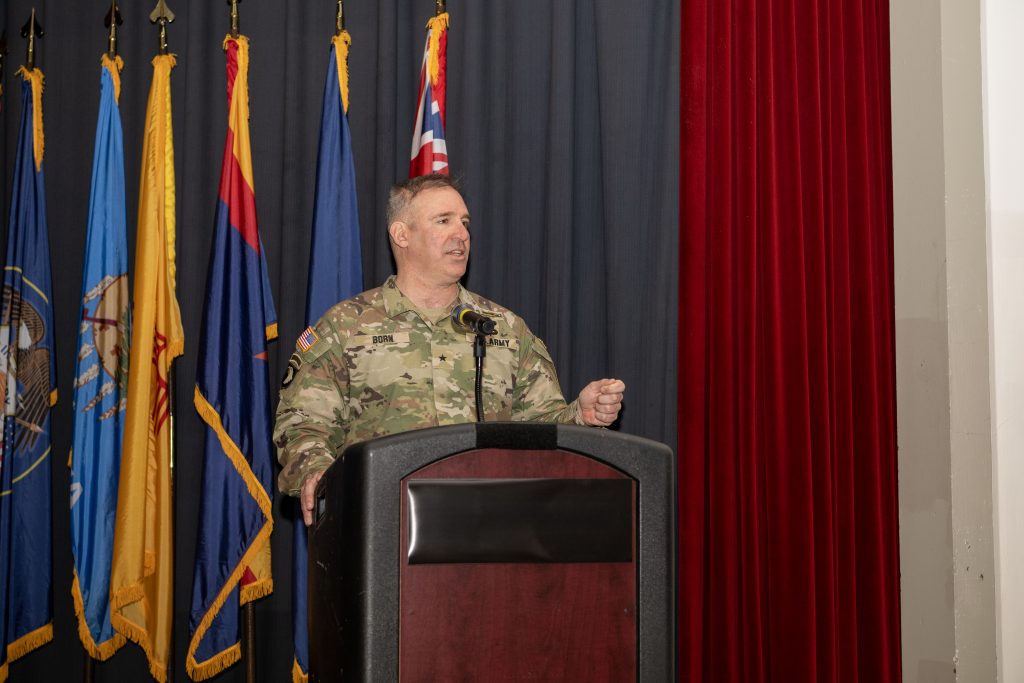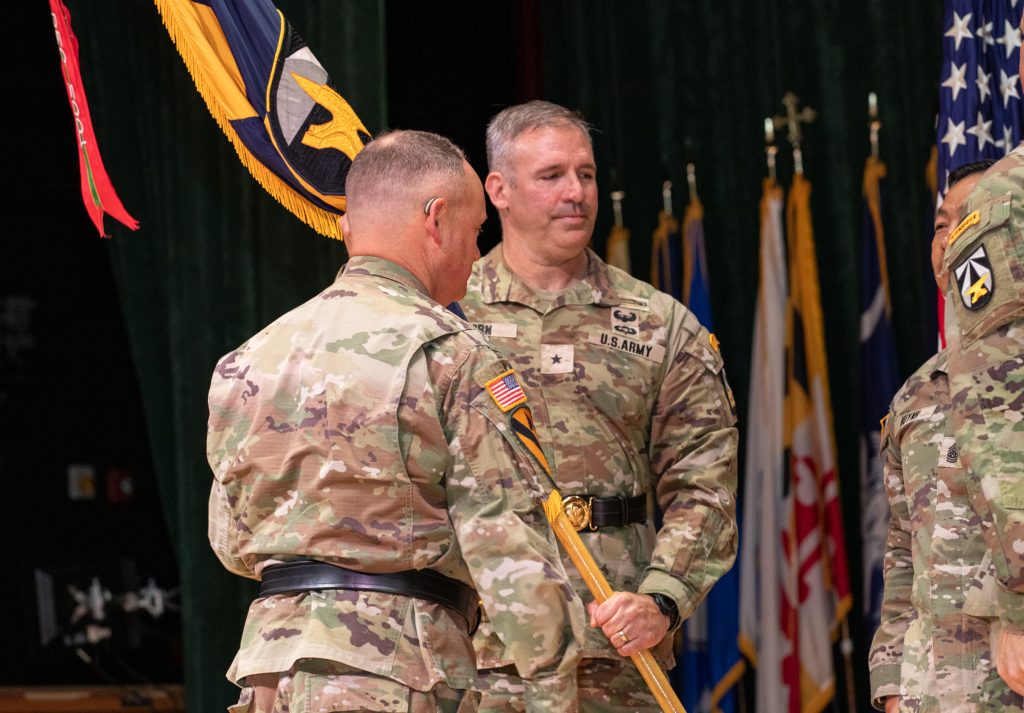DEVCOM Analysis Center Trio Leads Robust STEM Program
March 27, 2023Argie Sarantinos, DEVCOM Headquarters
Maintaining a pipeline of qualified cybersecurity analysts is a key mission for a U.S. Army Combat Capabilities Development Command Analysis Center team at White Sands Missile Range. The team includes Oscar Perez, Ph.D., Juan Ulloa and Herandy Vazquez, who participate in Science, Technology, Engineering and Mathematics activities. They lead a robust internship program that began with two summer interns and has grown to more than a dozen year-round interns from across the nation.
“I started leading the Center for Cyber Analysis and Assessment about five and a half years ago. I redesigned the program and expanded collaboration with other departments and schools. Juan and Herandy stepped in to help in 2018, and we worked together and expanded the program – including the internship program – to what it is today,” Perez said.
The DEVCOM Analysis Center team works closely with the CCAA, which is located at the University of Texas at El Paso. The projects include cybersecurity workshops for training, professional development, data collection, analysis and experimentation. During a recent workshop there were more than 30 professionals from private companies, state agencies and government organizations, including the Department of Defense’s National Security Agency, the U.S. Air Force and the Department of Homeland Security, as well as more than 30 students and members of the FBI Cyber squad.
The three members of the DAC team have a background in cybersecurity, and they support the Army Educational Outreach Program by attending career fairs and conducting workshops in the region – they held more than 75 cybersecurity workshops and events for K-16 students in 2022. The AEOP offers an array of educational opportunities for students in kindergarten through college. It is an Army-wide STEM outreach initiative that is operated through a Cooperative Agreement. DEVCOM executes the AEOP COA on behalf of the Deputy Assistant Secretary of the Army, Research & Technology, and the Army Science and Technology community.
Recently, the DAC team attended recruiting events at the 18th Annual Career Connections at New Mexico State University, the University of Texas at El Paso Career Fair, the Black engineer of the Year Award (BEYA) STEM conference and recruiting event, the University of Maryland and New Mexico Tech, where they showcased STEM careers at DEVCOM and collected résumés from students interested in pursuing a career at DEVCOM.
Maintaining partnerships with colleges and universities is integral to DAC’s success. The team works with students at UTEP on their electrical engineering capstone projects, which students complete during their senior year. In the electrical engineering capstone project, students research and develop tools, techniques and methodologies that align with DAC’s priorities. During the process, students learn and graduate with practical knowledge in cybersecurity areas, including augmented reality, smart building sensors, internet of things devices and biometric sensors for state-of-the-art wearable technologies. For the computer science capstone project, students meet with the DAC team every two weeks to gather guidelines and priorities to design a tool that closes the gap on a cybersecurity analysis need. First, the students produce a software requirement specification document, which includes requirements they gather during the first semester. Then, they develop a prototype during their second semester.
The DAC team also established a wireless laboratory at UTEP for undergraduate and graduate students who major in electrical and computer engineering. The students learn not only how to detect cyber vulnerabilities, but also how to fix them.
“One of the benefits of working with these students is that they develop prototypes that may help the Army. We also motivate the students about working for the DoD in support and defense of our nation,” Ulloa said.
Ulloa was a high school physics, chemistry and computer science teacher for five years before he joined the federal government. He met Perez when he was a varsity soccer coach. Ulloa credits working on STEM projects with ‘filling a void’ that he felt when he left teaching to become a U.S. Army Civilian.
A key part of the DAC team’s STEM outreach includes visiting more than 1,200 students in the elementary, middle and high school system around the El Paso, Texas and Las Cruces, New Mexico area. They conduct cybersecurity workshops and lead discussions on various STEM-related fields. These workshops include: Technology Exploration, which reaches more than 5K students each year; Science Technology Engineering Art and Math, which reaches more than 1K students each year; and Gains in the Education of Mathematics and Science, which reaches more than 100 students each year.
GEMS is an Army-sponsored STEM summer enrichment program for middle and high school students, based on a multi-disciplinary educational curriculum that includes age- and grade-appropriate, hands-on activities in the following areas: science; engineering; mathematics; computational sciences; computational biology; biomedical sciences; chemistry; and biology.
“We reach out to children in elementary, middle and high school during various events to motivate them to pursue careers in cybersecurity. We have been actively pursuing high schoolers to participate in the GEMS program for the past 12 years. Some of the GEMS students become interns at DAC,” Perez said. “We wouldn’t be so successful, however, without the numerous DAC colleagues and academic partners who work with us on our STEM initiatives.”
During a recent visit to Centennial High School in Las Cruces, New Mexico, the DAC team met 60 high school students who participated in a password-cracking exercise that Vazquez developed.
The DAC team leads other activities that include The Dragon City program, where students perform cybersecurity challenges remotely. Perez developed the program from home when the coronavirus pandemic began in 2020.
Vazquez hopes to close the gap in the male-dominated computer science field by conducting computer science and cybersecurity workshops for female students, ensuring they are aware of opportunities in these fields. She also participates in programs and events geared toward women, such as the Society of Women Engineers.
The STEM program is a gateway for girls in our local schools to gain exposure to various careers in cybersecurity. I’m really proud of the number of females in our organization who have computer science backgrounds,” Vazquez said.
—
The U.S. Army Combat Capabilities Development Command, known as DEVCOM, is home to thousands of Army scientists, engineers, technicians and analysts working around the globe to leverage cutting-edge technologies and empower the American warfighter with the data and abilities to see, sense, make decisions and act faster than our adversaries – today and in the future.
As part of Army Futures Command, DEVCOM takes calculated risks to find new technological solutions each day. Our experts drive innovation, improve existing technologies and engineer solutions to technical challenges. Our work goes beyond theory to simulation and prototyping. We take potential science and technology solutions from the lab “into the dirt” for experimentation alongside Army Soldiers. DEVCOM prides itself as a global ecosystem of innovators, from world-class universities and large defense contractors, to small, minority-owned businesses and international allies and partners.






